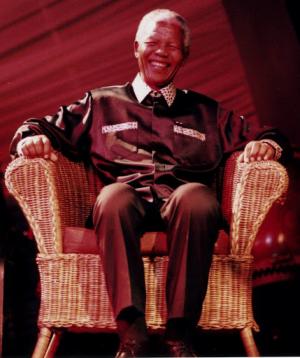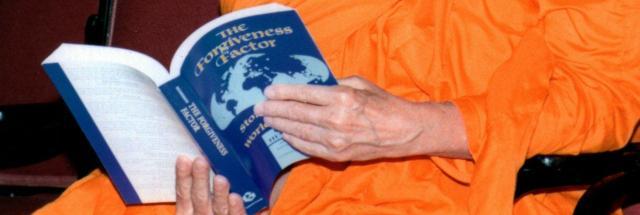At his treason trial fifty years ago Nelson Mandela told the court, ‘During my lifetime I have dedicated myself to this struggle of the African people. I have fought against white domination, and I have fought against black domination. I have cherished the ideal of a democratic and free society in which all persons live together in harmony and with equal opportunities. It is an idea which I hope to live for and to achieve. But if needs be, it is an ideal for which I am prepared to die.’
 South Africa and the world can be grateful that he lived.
South Africa and the world can be grateful that he lived.
Former US President Bill Clinton once asked the Nobel Peace Prize winner to describe his long walk from Robben Island to the office of the South African presidency. ‘When you’re young and strong,’ Mandela told him, ‘you can stay alive on your hatred. And I did, for many years.’ Then, one day, after years of imprisonment, physical and emotional abuse and separation from his family, he realised that everything could be taken from him except his heart and mind. ‘They could not take those things. Those things I still had control over. And I decided not to give them away.’ In another conversation the former South African president admitted that as he was leaving prison he was tempted to hate again but realised that ‘when I went through that gate, if I still hated them, they would still have me. I wanted to be free. And so I let it go.’
Mandela’s willingness to forgive despite all his suffering helped avert a terrible civil war or a bloodbath, both of which were confidently predicted for his country after apartheid. He showed in a convincing manner that forgiveness is not just a personal or religious matter but can affect the life of a whole nation. He also gave a powerful example to a world often short of good news of the difference one individual can make.
Mandela’s approach was not sentimental but realistic and practical. ‘It was very repugnant to think that we could sit down and talk with those people, but we had to subject our plan to our brains and to say, “Without these enemies of ours, we can never bring about a peaceful transformation to this country.” And this is what we did. The reason why the world has opened its arms to South Africans is because we are able to sit down with our enemies and to say, “Let us stop slaughtering one another. Let’s talk peace.”’
It is impressive the way in which South Africans of different races have over the years drawn on their religious heritage and demonstrated such amazing readiness to forgive. I was first conscious of this quality when I was in South Africa in 1954 and met several of Mandela’s colleagues from the independence struggle including Chief Albert Luthuli, later Nobel Peace Prize winner, and William Nkomo, a medical doctor and first black president of the South African Race Relations Institute who with Mandela was a co-founder of the African National Congress Youth League.
Former Archbishop Desmond Tutu has as much as anyone explained this phenomenon with his references to Ubuntu. a traditional Southern African philosophy which emphasizes our common humanity; our connectedness and interdependence as fellow human beings. ‘I am, because you are,’ says Archbishop Tutu; ‘How I behave impacts not only on me but also others around me because we all belong together. So a person with ubuntu is generous, thoughtful and respectful towards others, appreciating the differences that together make us greater than the sum of our parts!’
Mandela in his autobiography Long Walk to Freedom, says that in his long and lonely years in prison his hunger for freedom for his own people became a hunger for the freedom of all people. ‘A man who takes away another man’s freedom is a prisoner of hatred, he is locked behind the bars of prejudice and narrow-mindedness. The oppressed and the oppressor alike are robbed of their humanity.’ A look at today’s headlines tells us that his walk has ended, ours has not.

